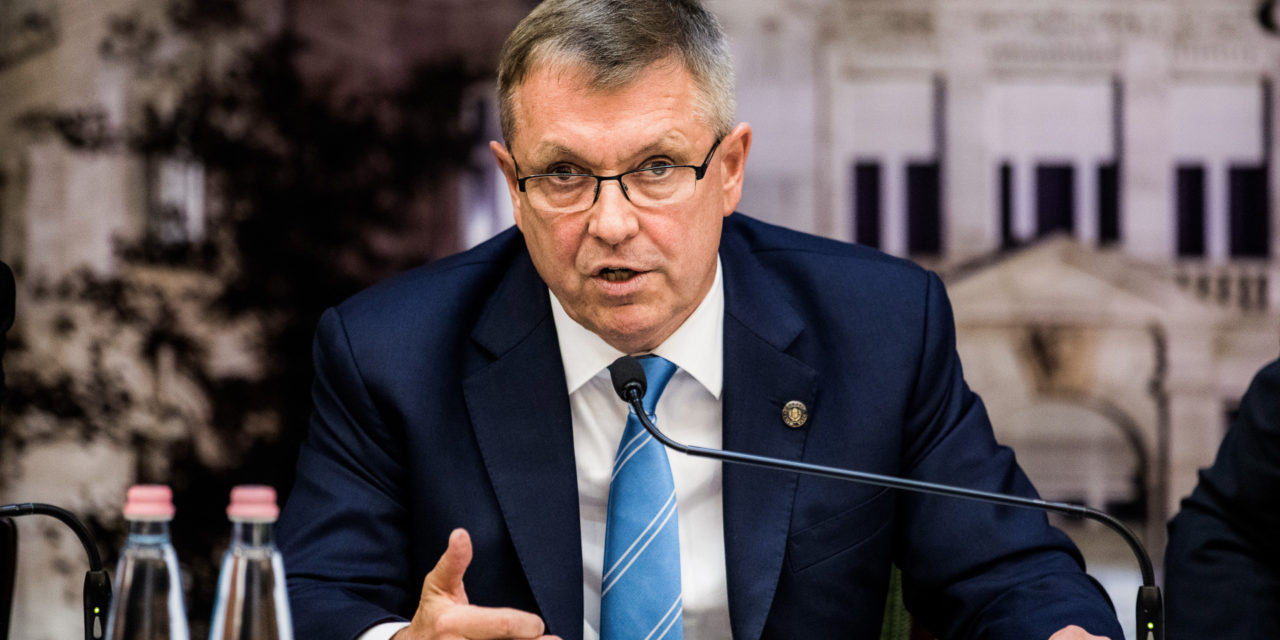György Matolcsy, president of the Magyar Nemzeti Bank, wrote an article on crisis management, including financial crisis management, for Magyar Nemzet. We have selected the main ideas of the paper.
1. The level of competitiveness achieved is decisive.
Among the EU, from 2019 to 2020, those who were the best in the competitiveness rankings increased their level of development compared to the average. The southern ones fell even more than the competitiveness ranking would have justified, which is due to the high GDP ratio of tourism.
2. Digital development helps a lot.
There is a strong positive relationship between crisis management and digital preparedness (DESI digitization index). In the current crisis, those who previously put more weight on the digital transition have fared better.
3. The competitiveness of the financial system could have been decisive.
The Hungarian crisis management was based on lending, the efficient deployment of the resources of the MNB and the financial system
supported the budget, the business sector and families. This made the labor market crisis-proof. The basis for this was the financial competitiveness turnaround initiated after 2013, because thanks to it, the competitiveness of the Hungarian economy and the financial system improved to the greatest extent in the catch-up phase between 2013-19.
4. Competitiveness can be improved even during crisis management.
From 2019 to 2021, Hungary advanced from 47th to 42nd in the IMD's 334 competitiveness ranking.
The biggest jump was in the field of international investments, where we went from 40th to 10th, and in economic performance, where we rose from 19th to 8th out of 64 countries. We also moved forward from 20th place to 13th place in terms of employment. Our competitiveness may have improved during crisis management because the crisis resolved an internal economic political stalemate. The annual budget interest no longer hindered proposals aimed at improving competitiveness. The price of this is now the high budget deficit and the runaway national debt. However, the lesson is clear: a jump in competitiveness requires economic policy thinking, not budgetary thinking.
5. We are not yet sufficiently prepared for the post-crisis world.
The Hungarian economy has restarted, and we expect to reach the end-2019 GDP level in the third quarter. We assessed the preparedness of the Hungarian economy for the post-crisis world (MNB Sustainable Future Index), which is significantly lower than the average level of the EU. There are 17 countries ahead of us, 9 behind us. The 18th place is slightly better than our 21st place according to today's development, but this indicates the ability of the future, not the performance of the past, so it is not sufficient. We are weakest in the digital area, in the preparedness of the workforce and in the ability to transform healthcare. We have the same people who are ahead of us in the international competitiveness rankings.
6. A complete turnaround in competitiveness is needed to catch up and successfully manage the next crises.
Just like the crises of the past thirty years, the current Covid-19 crisis also has a clear lesson that those who have continuously improved their competitiveness before are better able to handle the challenges. It also helps if they make a leap in competitiveness during a crisis. It has cost Hungary a great deal to have missed the turnaround in competitiveness so far. If you continue to fall behind, it will cost us to catch up.
This is why the institutional change of the government's economic policy and the establishment of a new institution responsible for competitiveness are necessary.
the rest of the article here.













